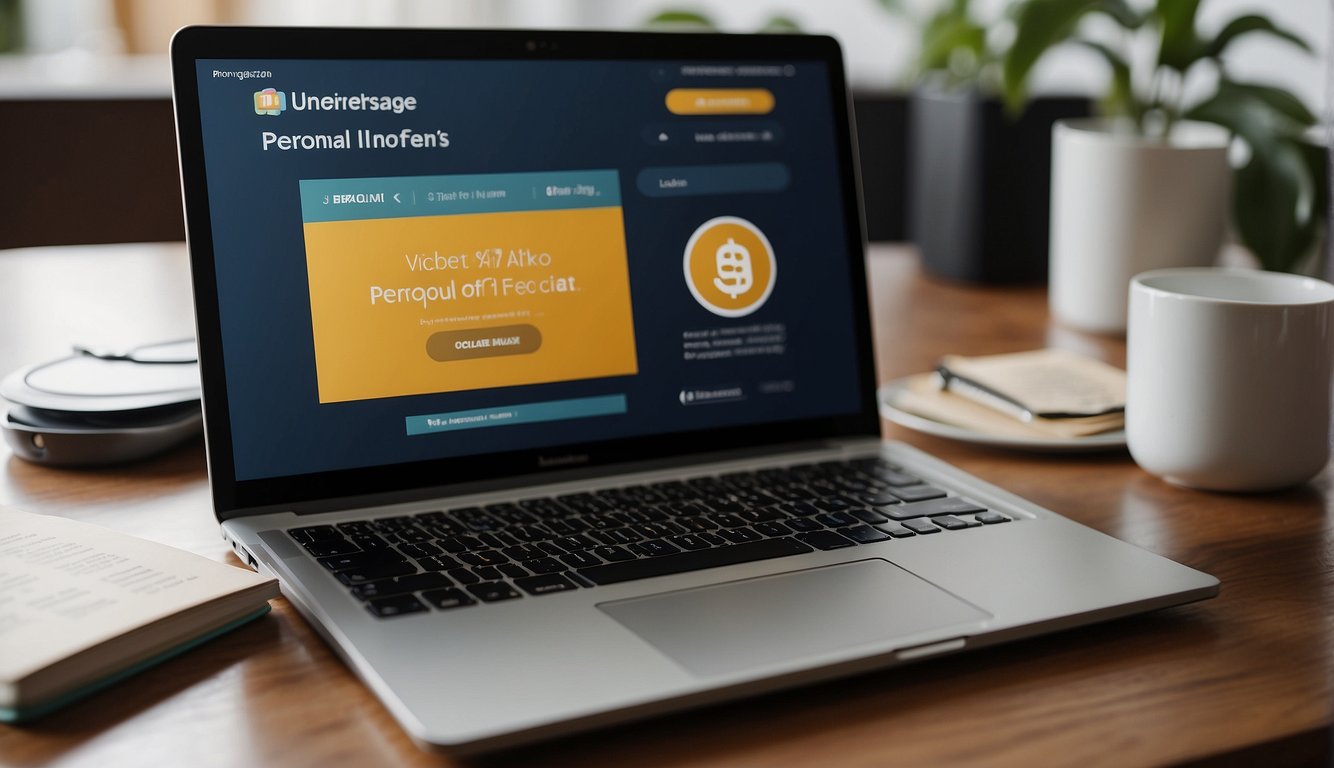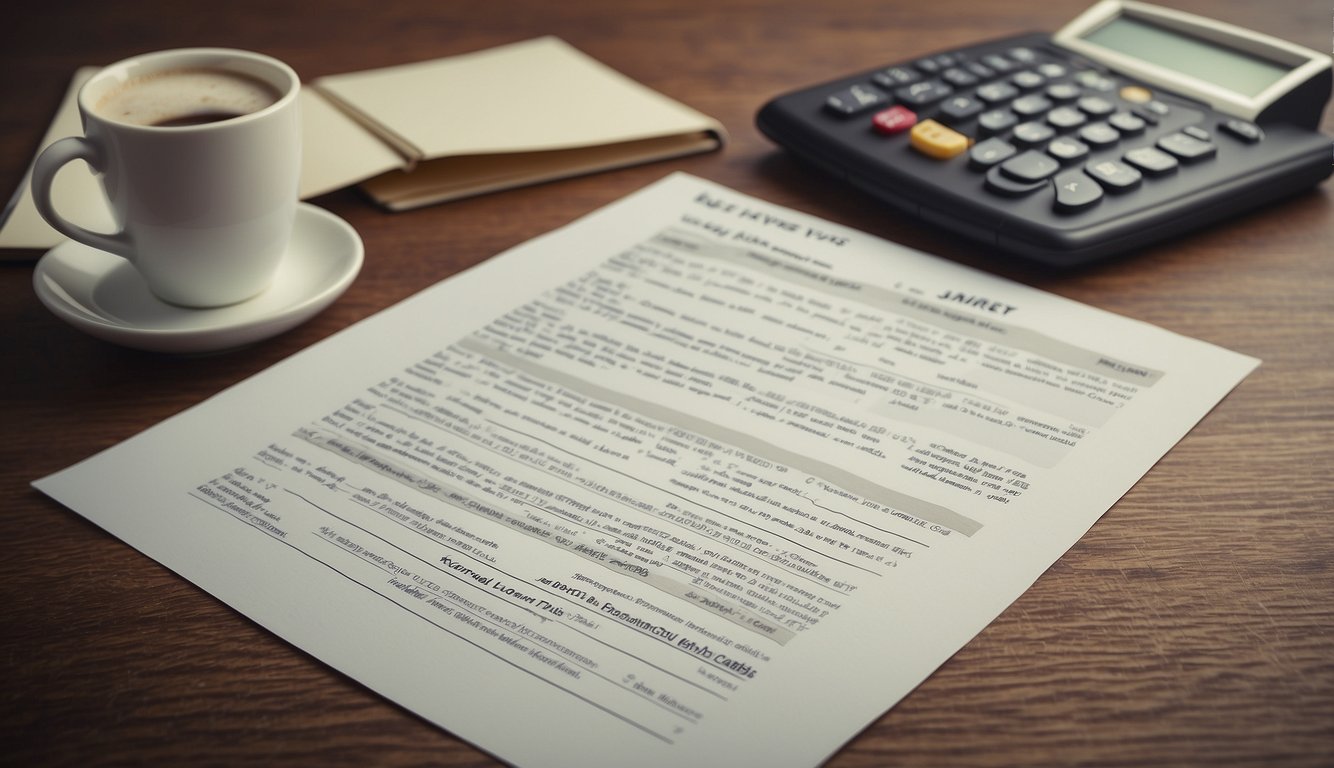Do you need a significant amount of money for a long-term project or investment? The best long term personal loans might be the solution you are looking for.
Personal loans are a type of loan that can be used for a variety of purposes, such as debt consolidation, home renovations, or even funding a wedding. They are unsecured loans, meaning you don’t have to provide collateral to secure the loan. Instead, lenders rely on your credit score and income to determine your eligibility for the loan.

However, not everyone is eligible for a personal loan. Lenders have strict criteria that borrowers must meet to be considered for a loan. Your credit score, income, and debt-to-income ratio are some of the factors that lenders consider when assessing your eligibility for a personal loan.
In this article, we will explore the eligibility requirements for long-term personal loans, as well as the best personal loan providers in Singapore that offer long-term loans.
Key Takeaways
- Personal loans are a type of unsecured loan that can be used for various purposes.
- Lenders have strict eligibility criteria that borrowers must meet to be considered for a personal loan.
- To be eligible for a long-term personal loan, you need to have a good credit score, a stable income, and a low debt-to-income ratio.
Understanding Personal Loans

If you’re looking for a way to finance a big purchase or consolidate existing debt, a personal loan might be the answer you’re looking for. Personal loans are a type of unsecured loan that can be used for various purposes, from home renovations to paying off credit card debt.
In this section, we’ll explore what personal loans are, the types of personal loans available, and the pros and cons of taking out a personal loan.
What Is a Personal Loan?
A personal loan is a type of loan you can use for whatever purpose. Unlike a secured loan, like a mortgage or car loan, a personal loan is unsecured, which means you don’t need any collateral to secure the loan. Instead, the lender will assess your creditworthiness to determine whether you’re eligible for a loan and, if so, what interest rate you’ll pay.
Types of Personal Loans
There are two main types of personal loans: secured and unsecured. Secured personal loans are backed by collateral, such as a car or a house, which the lender can seize if you default on the loan. Unsecured personal loans, on the other hand, don’t require collateral, but they often come with higher interest rates.
Other types of personal loans include debt consolidation loans, which allow you to combine multiple debts into one loan with a single monthly payment, and payday loans, which are short-term loans that are meant to be repaid on your next payday.
Pros and Cons of Personal Loans
Personal loans can be a great way to finance a big purchase or consolidate debt, but they’re not without their drawbacks. Here are some of the pros and cons of taking out a personal loan:
Pros:
- You can use the money for whatever you like
- You don’t need to put up any collateral
- You can often get a lower interest rate than you would with a credit card.
Cons:
- You’ll need to pay interest on the loan, which can add up over time
- If you have bad credit, you may not be eligible for a loan, or you may have to pay a higher interest rate
- If you default on the loan, the lender can take legal action against you
Overall, personal loans can be a great way to finance a big purchase or consolidate debt, but it’s important to weigh the pros and cons before you apply for a loan.
Eligibility for Personal Loans

Are you looking for a long-term personal loan? If so, you’ll need to meet certain eligibility criteria to be considered. Here are some factors that lenders will look for when determining your eligibility for a personal loan.
General Eligibility Criteria
To be eligible for a personal loan, you must be at least 21 years old and a permanent resident or citizen of the UK. Foreigners may also be eligible, but they may need to provide additional documentation to prove their eligibility.
Credit Score and History
Your credit score and history are important factors that lenders will consider when deciding whether to approve your loan application. A good credit score and history can increase your chances of approval and may also result in a lower interest rate.
If you have a poor credit score or a history of missed payments, you may still be able to get a personal loan, but you may need to pay a higher interest rate. Some lenders may also require you to provide collateral to secure the loan.
Income and Employment Status
Your income and employment status are also important factors that lenders will consider when determining your eligibility for a personal loan. Most lenders will require you to have a minimum income of £15,000 per year, although some may have higher or lower requirements.
You will also need to provide proof of your employment status, such as payslips or a letter from your employer. If you are self-employed, you may need to provide additional documentation, such as tax returns or business financial statements.
In summary, to be eligible for a long-term personal loan, you will need to meet certain eligibility criteria, including being a permanent resident or citizen of the UK, having a good credit score and history, and having a minimum income of £15,000 per year. If you meet these criteria, you may be able to find a lender who can offer you a personal loan with a competitive interest rate and favourable terms.
Applying for a Personal Loan

If you are considering applying for a long-term personal loan, there are a few things you should know before you start the application process. In this section, we’ll go over the loan application process, the required documentation, and how to choose the right lender.
Loan Application Process
The loan application process varies depending on the personal loan provider you choose. Most lenders, such as banks, financial institutions, and credit unions, offer online applications that you can complete from the comfort of your own home. Licensed moneylenders may require you to visit their office in person to complete the application process.
To apply for a personal loan, you will typically need to provide information about yourself, including your name, address, employment status, and proof of income. You may also need to provide information about the purpose of the loan and the amount you wish to borrow.
Required Documentation
When applying for a personal loan, you will need to provide documentation to support your application. This may include proof of income, such as pay stubs or tax returns, as well as identification documents, such as a passport or driver’s license. You may also need to provide documentation to support the purpose of the loan, such as a quote from a contractor if you are taking out a loan for home renovations.
Choosing the Right Lender
Choosing the right lender for your personal loan is an important decision. It would be best if you considered factors such as interest rates, fees, and repayment terms when selecting a lender. It is also a good idea to research the lender’s reputation and read reviews from other borrowers to ensure that they are a trustworthy and reliable provider.
When comparing lenders, be sure to look at the total cost of the loan, including any fees and charges, as well as the interest rate. You should also consider the repayment terms, such as the length of the loan and the frequency of payments.
Overall, applying for a personal loan can be a straightforward process, provided that you have the required documentation and choose a reputable lender. By following the tips in this section, you can increase your chances of being approved for a long-term personal loan that meets your needs.
Loan Terms and Interest Rates

If you are considering taking out a long-term personal loan, it is important to understand the loan terms and interest rates. Here are some things you should know:
Understanding Interest Rates
When you take out a loan, you will be charged interest on the amount you borrow. Interest rates can be fixed or variable. A fixed interest rate remains the same for the entire loan period, while a variable interest rate can change over time.
Effective Interest Rate (EIR) vs Advertised Interest Rates
It is important to note that the advertised interest rate may not be the same as the effective interest rate (EIR). The EIR takes into account all the fees and charges associated with the loan. This means that the EIR gives you a more accurate picture of the true cost of borrowing.
Repayment Terms and Periods
When taking out a long-term personal loan, you will need to consider the repayment terms and period. Repayment terms can vary depending on the lender, but typically range from one to seven years. The longer the repayment period, the lower your monthly payments will be, but the more interest you will pay overall.
It is also important to consider the loan amount and loan amounts available. Some lenders may have minimum and maximum loan amounts, so make sure to check this before applying.
When comparing loans, look for the lowest interest rates and EIRs. However, be careful not to be swayed by low advertised interest rates as the EIR may be much higher.
In summary, understanding the loan terms and interest rates is crucial when considering a long-term personal loan. Make sure to compare loans from different lenders and choose the one that best suits your needs and budget.
Costs and Fees Associated with Personal Loans

If you are considering taking out a long-term personal loan, it is essential to understand the costs and fees associated with it. Here are some of the fees you may encounter.
Processing Fees and Origination Fees
When you apply for a personal loan, you may be charged a processing fee or origination fee. This fee is usually a percentage of the loan amount and can range from 1% to 5% of the total amount. Some lenders may also charge a fixed fee.
Late Payment and Early Repayment Fees
Late payment fees are charged when you miss a payment, and early repayment fees are charged when you pay off the loan before the end of the loan term. These fees can vary depending on the lender and the loan terms.
Additional Fees to Consider
In addition to the fees mentioned above, there may be other fees associated with your personal loan. For example, some lenders may charge a prepayment penalty if you pay off the loan early. You should also be aware of any fees for changing your payment method or for returning a payment.
Before you take out a personal loan, make sure you understand all the costs and fees associated with it. This will help you make an informed decision and avoid any surprises later on.
Maximising the Benefits of Personal Loans

If you are looking to borrow money, a personal loan can be a great option. Personal loans can be used for a variety of purposes, from debt consolidation to funding emergencies. Here are some ways to maximise the benefits of personal loans.
Using Loans for Debt Consolidation
If you have multiple debts with high-interest rates, consolidating them into one personal loan can be a great way to save money. By consolidating your debts, you can simplify your finances and potentially lower your interest rate.
When considering debt consolidation, it’s important to shop around for the best loan terms and interest rates. Look for a loan with a lower interest rate than your current debts and make sure you can afford the monthly payments.
Investing in Education and Home Improvement
Personal loans can also be a great way to invest in your future. You can use a personal loan to pay for education or home improvement projects that can increase the value of your home.
When using a personal loan for education, make sure to consider the interest rate and repayment terms. You don’t want to end up with a loan that you can’t afford to repay.
For home improvement projects, consider using a secured loan, such as a home equity loan, if you have equity in your home. This can help you get a lower interest rate and potentially save you money in the long run.
Planning for Weddings and Emergencies
Personal loans can also be a great way to fund major life events, such as weddings or emergencies. If you need money quickly, a personal loan can be a good option.
When using a personal loan for a wedding, make sure to consider the interest rate and repayment terms. You don’t want to end up with a loan that you can’t afford to repay.
For emergencies, consider using a personal loan as a last resort. Make sure to shop around for the best loan terms and interest rates and only borrow what you need.
Overall, personal loans can be a great way to borrow money for a variety of purposes. Just make sure to consider the interest rate and repayment terms before borrowing and only borrow what you can afford to repay.
Best Personal Loan Providers in Singapore

If you are looking for the best personal loan providers in Singapore, you have come to the right place. There are many options available, including banks and moneylenders. Here are some of the top providers to consider:
Comparing Top Banks and Moneylenders
HSBC, DBS, Standard Chartered, UOB, OCBC, Citibank, and CIMB are among the best personal loan providers in Singapore. Each of these providers offers different loan packages and interest rates, so it is important to compare them carefully before making a decision.
HSBC Personal Loan is known for its low interest rate, while UOB Personal Loan offers a flexible repayment period of up to 5 years. DBS Personal Loan has a fast approval process, and Citibank Quick Cash offers a low effective interest rate.
Promotions and Special Offers
Personal loan providers often have promotions and special offers to attract customers. For example, CashPlus is currently offering a cashback promotion for new customers who apply for a personal loan. Citibank is offering a S$100 GrabFood voucher for new customers who apply for a personal loan online.
Customer Reviews and Testimonials
Before choosing a personal loan provider, it is important to read customer reviews and testimonials. This will give you an idea of the provider’s reputation and customer service. You can find reviews on the provider’s website or on independent review sites.
Overall, there are many great personal loan providers in Singapore to choose from. Be sure to compare interest rates, loan packages, and promotions before making a decision. With the right provider, you can get the funds you need for your long term financial goals.
Frequently Asked Questions

What’s the most common type of loan for long-term financing?
When it comes to long-term financing, the most common type of loan is a personal loan. Personal loans are typically offered by banks and other financial institutions, and they can be used for a variety of purposes, including home improvements, debt consolidation, and major purchases like a car or a wedding.
How does one’s credit score affect eligibility for a long-term personal loan?
Your credit score is one of the most important factors that lenders consider when evaluating your eligibility for a long-term personal loan. A good credit score can help you qualify for a lower interest rate and better terms, while a poor credit score can make it more difficult to secure a loan. If you have a less-than-perfect credit history, you may still be able to qualify for a long-term personal loan, but you may need to pay a higher interest rate.
Can you secure a long-term personal loan, and what collateral might be required?
In most cases, personal loans are unsecured, which means that you don’t need to provide any collateral to secure the loan. However, if you have a poor credit history or if you’re looking to borrow a large amount of money, you may be required to provide collateral, such as a car or a house, to secure the loan.
Is it possible to obtain a personal loan with a term of 10 years or more?
Yes, it is possible to obtain a personal loan with a term of 10 years or more, but it’s important to note that longer-term loans typically come with higher interest rates. Before you apply for a long-term personal loan, it’s important to consider whether you’ll be able to afford the monthly payments over the entire term of the loan.
Are there options for long-term personal loans even with a less-than-perfect credit history?
Yes, there are options for long-term personal loans, even if you have a less-than-perfect credit history. Some lenders specialize in providing loans to people with poor credit, although you may need to pay a higher interest rate and provide collateral to secure the loan.
What are the current lowest interest rates for long-term personal loans in Singapore?
The current lowest interest rates for long-term personal loans in Singapore vary depending on the lender, the loan amount, and the repayment term. It’s important to shop around and compare rates from different lenders to find the best deal. As of January 2024, the lowest interest rates for long-term personal loans in Singapore range from around 3% to 7%.

